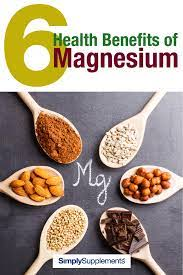
- Vegans who meet their daily protein requirements may still fall short on certain essential amino acids, according to new research.
- The study highlights that protein quality, not just quantity, plays a critical role in meeting nutritional needs.
- Unlike animal-based proteins, many plant-based proteins are less digestible and may have lower concentrations of one or more essential amino acids.
Vegans who consume adequate protein may still not get enough of certain essential amino acids in their diet, according to new research.
While prior studies have tended to focus on the total amount of protein consumed in a vegan diet, a new study, published on April 16 in PLOS ONE, has honed in on specific amino acids. When considering digestibility, the research found that only about half of the participants appeared to meet the body’s requirements for lysine and leucine.
The study emphasizes the importance of evaluating not just total protein consumption, but also protein quality and amino acid composition in a vegan diet.
Amino acids are the “building blocks” of protein. While the body can produce some amino acids on its own, nine essential amino acids must come from dietary sources.
Plant-based proteins were previously viewed as “incomplete proteins,” lacking certain essential amino acids. We now understand that they provide all nine essential amino acids, but sometimes in less optimal levels than in animal-based foods.
This means those following a vegan diet must consume a strategic variety and quantity of foods, such as nuts and legumes, to get enough of the essential amino acids.
“Consuming 30 grams of lower quality plant protein, such as wheat, is different from consuming the same quantity of protein from soy, a higher quality plant protein,” said Bi Xue Patricia Soh, MSc, first author of the study and a PhD fellow with The Sustainable Nutrition Initiative Team at the Riddet Institute, Massey University, New Zealand.
“Our findings therefore support that, even when we are meeting total protein requirement, the foods consumed may not be of adequate protein quality in terms of supplying sufficient lysine and leucine required for body functions,” Soh told Healthline.
50% didn’t meet amino acid requirements
Soh and her team conducted a cross-sectional study of 193 long-term vegans in New Zealand (141 women, 52 men).
Participants were healthy adults who had followed a vegan diet for at least two years. Each completed a detailed four-day food diary documenting all food, beverages, and supplements consumed over consecutive days.
The team strengthened their analysis by adjusting for protein digestibility, which measures how efficiently the body breaks down and absorbs protein and amino acids from different food sources.
After adjusting for digestibility, the researchers found that while most participants met their overall protein requirements — 78.8% of males and 73.0% of females — many fell short on lysine and leucine intake.
Soy protein, for example, has one of the highest digestibility ratings among plant foods, allowing the body to utilize nearly all of its nutrient content. In contrast, wheat protein has lower digestibility rates due to the presence of antinutrients and other factors.
This distinction is crucial because many assessments of plant-based diets may overestimate actual protein availability by not accounting for digestibility — a finding clearly borne out in the study.
After adjusting for digestibility, about 25% of participants did not meet their protein requirements. The shortfall was even more pronounced for specific amino acids: only 43.5% of participants met their requirements for digestible leucine, and just 56% consumed adequate digestible lysine.
The remaining essential amino acids were generally present in sufficient amounts even after the digestibility adjustment.
What are the 9 essential amino acids?
The nine essential amino acids are as follows:
- phenylalanine
- valine
- threonine
- tryptophan
- methionine
- leucine
- isoleucine
- lysine
- histidine
Since the body cannot synthesize essential amino acids on its own, eating a well-balanced diet is crucial, especially for those following a vegan diet.
“Essential amino acids play an important role in general health. Therefore, ongoing deficiency has the potential to create adverse health effects,” Kristin Kirkpatrick, MS, RD, a nutritionist at the Cleveland Clinic, and co-author of “Regenerative Health,” told Healthline.
These nine essential amino acids play an important role in many essential functions of the body, including:
- stimulating muscle growth
- fat metabolism
- immune function
- sleep regulation
- appetite control
- regulating blood sugar
- calcium absorption
“Lysine and leucine contribute to normal bone health, healthy muscle mass, and DNA methylation. Leucine in particular has important roles in cell signaling pathways that modulate muscle protein synthesis,” said Soh.
Keys to eating a nutritious vegan diet
“The easiest and most feasible way is to ensure diverse plant proteins are consumed in the three meals of the day and supplement this with one or two protein-dense snacks — nuts, seeds, [and] protein shakes with isolates that have higher amino acid digestibility,” said Soh.
The study found that legumes and pulses, such as edamame, black beans, chickpeas, and lentils, were the top sources of digestible protein and lysine.
Still, many plant-based protein options exist, including fruits, vegetables, grains, and nondairy milks, all of which can contribute to daily amino acid intake.
“Even when hitting adequate protein amounts, we want a well-balanced diet rich in fiber and other nutrients,” Alyssa Kwan, MS, RD, a clinical dietitian in cardiology at Stanford Medicine, not involved in the study, told Healthline.
Unlike animal-derived proteins, which contain all nine essential amino acids in adequate amounts, plant proteins often need to be combined to reach the same nutritional benchmark.
But you don’t need to combine specific foods at every meal. Consuming various plant-based proteins throughout the day and emphasizing high quality plant-protein sources like beans and soy products can help you meet your needs for essential amino acids.
Still, Kwan noted that a diet must be examined holistically rather than focusing on individual parts.
“I do not think we need to target adequate lysine or leucine or even any other specific amino acids. I would say focusing on high fiber and protein plant-based foods should help achieve any discrepancies in essential amino acids,” she said.
Kirkpatrick added that following a vegan diet doesn’t automatically guarantee balanced nutrition. Intentional food choices are key.
“Some of the vegan patients I have worked with in the past have started on their own and made choices that did not always speak to good nutrition. This could have been choosing ultra-processed vegan foods, not focusing on nutrient density, and a lack of knowledge of when supplementation may be necessary,” she said.

